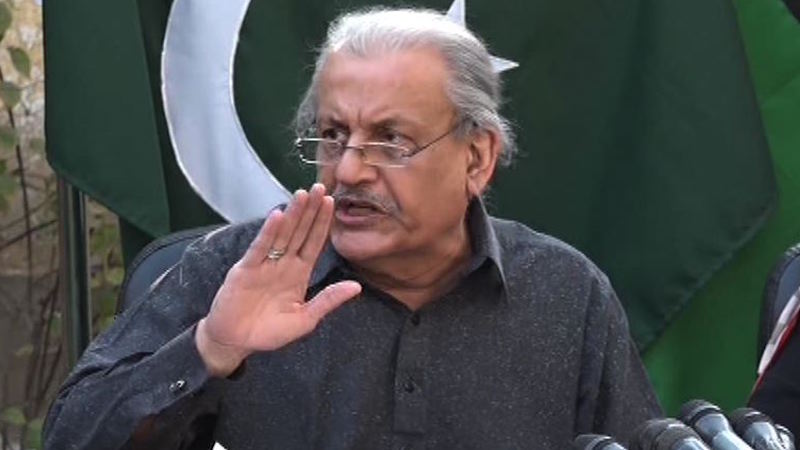ISLAMABAD: Speaking at the annual Asma Jahangir Memorial Lecture instituted by the Human Rights Commission of Pakistan (HRCP), Senator Raza Rabbani observed that, although the Constitution protected the right to freedom of association, Pakistan had witnessed a systematic and premeditated plan on the part of the state to ‘manipulate’ and ‘deny’ this—and other—fundamental rights.
The dictatorships of Ayub Khan and Zia-ul-Haq, he said, had deliberately isolated key ingredients of the democratic struggle, including students, labour and intellectuals. Although the late Benazir Bhutto had attempted to revive student unions in 1988, ‘the overarching state structure to which all political governments were, and continue to be, held hostage’ had prevented these efforts from materializing. Senator Rabbani also pointed out that the judiciary’s interim order banning student unions in June 1992 was ‘a clear infringement of Article 17’ and that its subsequent decision in March 1993 to allow limited student activity was based on the flawed understanding that it was did not behoove students to be involved in political matters.
Senator Rabbani reminded his audience that student unions in Pakistan had traditionally nurtured leaders whose entry into politics was ideological. He said that his efforts to move a bill removing Section 124A from the Pakistan Penal Code was inspired by the student movement in Pakistan, during which it was common practice for the state to attempt to suppress dissent by charging student leaders with sedition. It was a ‘source of shame’, he added, that students in Balochistan had been forcibly disappeared: ‘Parliament has raised this issue, but at the end of the day, the deep state does not listen.’
Underscoring HRCP’s position, honorary spokesperson I. A. Rehman said that the issue of student unions was not limited to students alone—it was a national issue and one for which all citizens must take responsibility. Thanking Senator Rabbani for having spoken on the occasion, HRCP’s chairperson Hina Jilani said that HRCP stood not just behind, but alongside the students’ movement and would continue to espouse their cause.



Comments are closed.